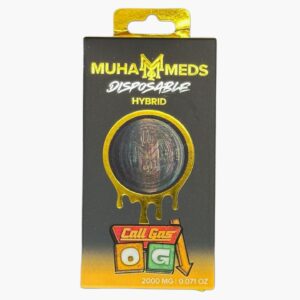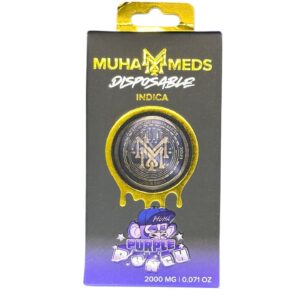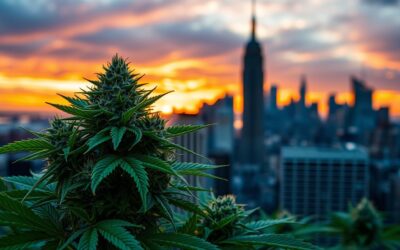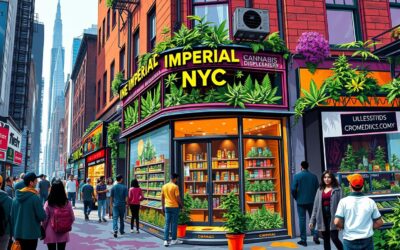Ever had nightmares caused by smoking too much cannabis? Secret tip: its probably not the cannabis.
Cannabis use is becoming increasingly legal in the United States and around the world. As a result, it is critical to comprehend the evidence supporting cannabis’s significance as a sleep aid. It may aid in the treatment of insomnia as well as the alleviation of nightmares associated with anxiety and post-traumatic stress disorder (PTSD). However, there may be unintended consequences, and its effectiveness necessitates a cost-benefit analysis.
Cannabis: The Science of It
Cannabis contains around 100 different types of compounds known as cannabinoids. These substances’ receptors can be found throughout the central nervous system, influencing brain function. The most abundant cannabinoids are delta-9 tetrahydrocannabinol (THC) and cannabidiol (CBD). These could have varying affects on sleep and mood.
Within the genus cannabis, there are two regularly utilized plant species: indica and sativa. In general, indica is more commonly utilized to treat persistent insomnia, anxiety, and discomfort. Sativa is more commonly used to alleviate nightmares.
Within each species, the mixes and quantities of THC and CBD may differ. THC may cause hallucinations, paranoia, euphoria, and other psychoactive effects. CBD may be more effective in reducing anxiety and improving sleep. Cannabinol, a sedative ingredient, appears to increase in concentration as Cannabis ages and dries out.
The medicine can be administered in a variety of ways. It can be smoked in the form of blunts, joints, or pipes. Oils, concentrates, or tinctures can be ingested or inhaled through vaporizers (commonly known as vaping). Cannabis can also be ingested in the form of edibles (brownies, cookies, and the like), but the several-hour wait in the beginning of action makes this way of administration less appealing when used as a sleep aid
How Does Cannabis Affect Sleep?
For many years, federal limitations have hindered scientific research into Cannabis use. As legal constraints are eased, more access for medical and recreational purposes will allow for further research into the potential medicinal utility. Nonetheless, several early findings in the body of scientific literature merit special attention.
According to preliminary study, CBD may have a bigger influence on improving sleep. THC may reduce the amount of time it takes to fall asleep (sleep latency), but it may damage sleep quality in the long run by suppressing slow-wave sleep.
Synthetic cannabinoids, such as nabilone and dronabinol, may offer short-term advantages for sleep apnea due to serotonin effects. This potential impact deserves further investigation, and there are presently no drugs available to address the disease. Instead, the problem is typically treated with continuous positive airway pressure (CPAP) therapy through the use of an oral appliance.
CBD also lowers REM sleep, which may aid persons who suffer from REM sleep behavior disorder’s dream-enactment habits. Withdrawal from Cannabis use may result in a rebound of REM sleep, which may have serious consequences for some persons.
Synthetic nabilone may also help to alleviate chronic pain and nightmares associated with PTSD.
Consequences of Cannabis Consumption
Despite the fact that legality and access to cannabis have expanded significantly in recent years, federal law poses a potential legal risk. Possession of Cannabis, as well as transporting it across state lines, can result in criminal punishment in several jurisdictions. Other legal consequences, such as the danger of employment termination, may also exist. 3 As with the use of any drug, there may be dangers and adverse effects associated with Cannabis use. It is possible that cognition, judgment, and driving safety would be impaired. Because of the minimal scientific research that has been undertaken, some adverse effects may not be fully understood. Additional financing for clinical research studies would aid in elucidating these concerns.
There is some worry that Cannabis users frequently experience prolonged sleep issues. The cause-and-effect link is yet unknown. It is possible that the sleeplessness persists, necessitating continued use of the drug to treat the symptoms, or that the Cannabis usage itself causes the chronic insomnia. According to studies, daily use causes increased sleep disruptions.
Indica consumption is more commonly related with cannabis dependence. Withdrawal from chronic Cannabis usage appears to aggravate sleeplessness and may result in vivid dreams, particularly in men. During withdrawal, women are more likely to experience anxiety and nausea. 6 Cannabis is also a costly therapy choice. If used on a daily basis as a sleep aid, these costs can soon add up to hundreds (and eventually thousands) of dollars. These expenses are frequently not covered by medical insurance. More effective treatments with fewer potential adverse effects may be desirable in many circumstances.
Cannabis may play a significant role in the treatment of insomnia, pain, anxiety, post-traumatic stress disorder (PTSD), and nightmares, however this has to be seen. More study is needed to determine the best role in treatment. The ideal chemical composition, concentration, and route of distribution must all be determined as part of this process. Side effects, including the possibility of long-term harm, must be well defined so that users can make educated decisions. The importance of regulations to ensure quality standards and safety cannot be overstated.
Consider seeing a board-certified sleep physician if you suffer from chronic insomnia. A diagnostic sleep study may be performed if necessary to determine the cause of difficulties falling asleep or sleeping through the night. Short-term sleep aids, including the use of prescription drugs, may be used. Furthermore, cognitive behavioral therapy for insomnia (CBTI) may provide relief without the risk of adverse effects. Our Doctor Discussion Guide below can assist you in starting a discussion with your healthcare provider about the best treatment option.











